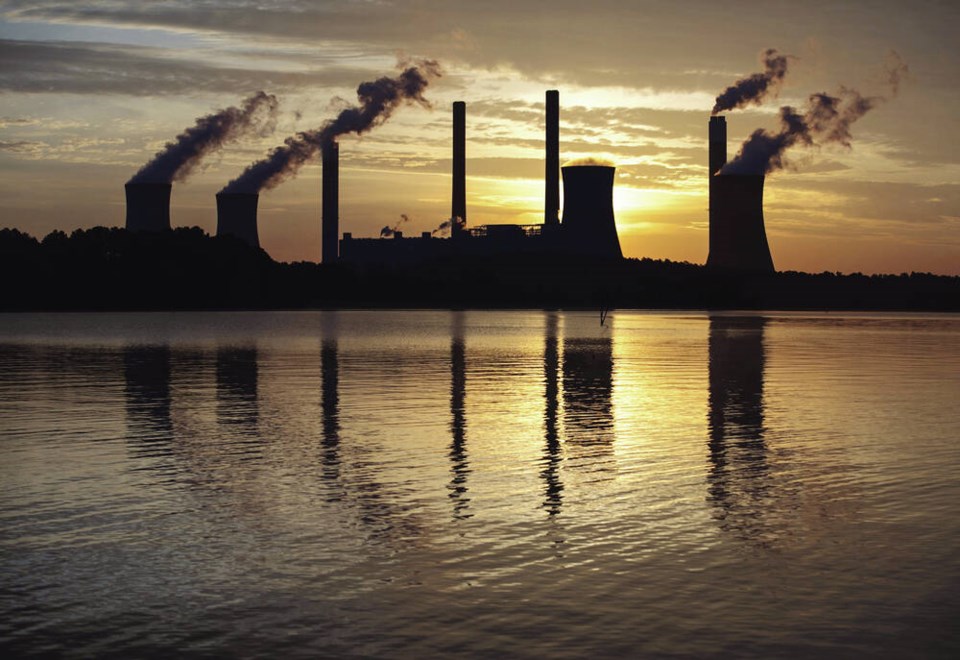Gwyn Morgan is cursed with bad timing, but remains determined to stay on the wrong side of history. In his July 23 fossil fuel/anti-environment spin exercise, this fossil-fuel businessman manages to criticize environmentalists and boost the fossil-fuel industry without once mentioning either climate change or global warming, never mind the human impact of those processes.
This in the week when we have watched vast areas of France, Spain and Portugal burn; seen Britain hit a temperature above 40 C for the first time ever; seen 100 million Americans under heat warnings, and witnessed droughts in India and flooding in Bangladesh, China and Australia.
I am reminded of Donald Trump recording his message to America the day after the Jan. 6 insurrection. Just as Trump could not say “the election is over,” so too Morgan can’t bring himself to write “climate change” or “global warming.” This would be funny, were it not so stupidly dangerous.
The fact is that what we are witnessing today in many parts of the world is the result of climate change — actually, climate chaos — driven largely by the combustion of Morgan’s beloved fossil fuels. And it’s going to get worse — probably much worse — before it gets better.
If it gets better. Because we are only at 1.1 C of warming, likely to surpass 1.5 C and on our way to 2 or 3 C warming or more.
But as David Suzuki notes in the accompanying article, fossil-fuel industry executives “mounted a full-scale campaign to deny, downplay or cause confusion about the growing evidence that their actions threaten our survival — a campaign that’s ongoing” — as Morgan’s column neatly illustrates.
The problem is not the environmentalists, it’s the fact that our warnings — dating back 50 years or more — were ignored, dismissed, ridiculed and downplayed by people like Morgan. The Club of Rome’s 1972 report “The Limits to Growth” anticipated that “the limits to growth on this planet will be reached sometime within the next 100 years.”
A 2008 review of their work by Graham Turner, a Principal Research Fellow at the Melbourne Sustainable Society Institute, concluded: “Thirty years of historical data compare favourably with key features of a business-as-usual scenario … which results in collapse of the global system midway through the 21st century.” That is less than 30 years away!
But an unholy alliance of corporations and governments, inspired — if that is the right word — by neoliberal economists, failed to understand, or preferred not to understand, what was being said. As a result, they failed to take action to protect us from the consequences of their actions.
Instead, they all chose to try to keep the whole crazy edifice of our industrial consumer economy going, regardless of the consequences — and they are still at it.
As Kenneth Boulding, at one time president of both the American Economic Association and the American Association for the Advancement of Science told the U.S. Congress in 1973, only a madman or an economist — or in this case, a retired business leader — “believes exponential growth can go on forever in a finite world.” And yet this is still the myth peddled by the world’s government and corporate leaders.
The real problem is that the solutions proposed by the environmental movement for decades, which would have shifted us from our current path to a healthier, more sustainable and equitable future, have been ignored or delayed.
As a result, we have probably lost any hope of managing a gentle transition to what the Science Council of sa╣·╝╩┤½├Į, in 1977, called a Conserver Society. But because of the shortsighted, pig-headed and self-serving opposition of the fossil-fuel industry and its many corporate and government fellow-travellers, we are running out of time.
We now face the prospect of trying to navigate through a rapid decline, even collapse, of key ecological systems. And when ecological systems decline or collapse, so too do the social and economic systems, the societies and communities, that depend upon them, with disastrous health impacts.
Quite a legacy the fossil-fuel industry and the entire corporate and government leadership is leaving us. Thanks, Mr. Morgan.
Dr. Trevor Hancock is a retired professor and senior scholar at the University of Victoria’s School of Public Health and Social Policy.



